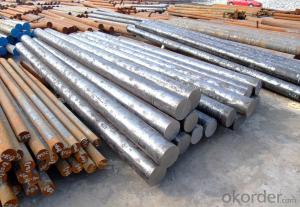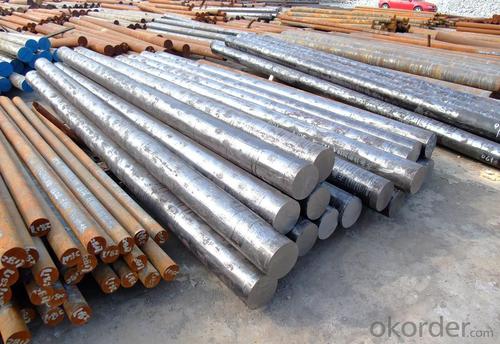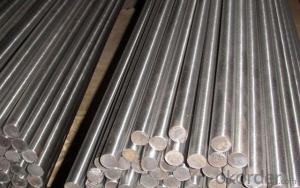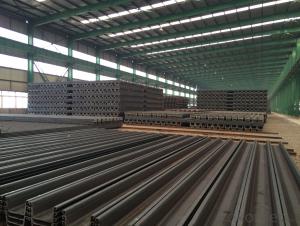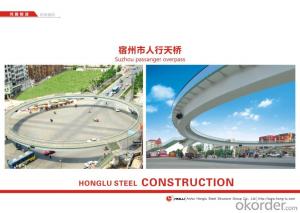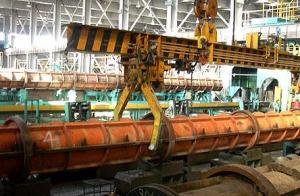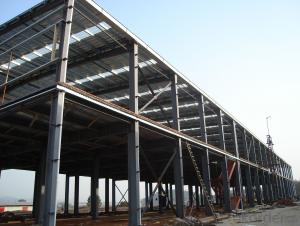Light steel rail made in China for construction
- Loading Port:
- Tianjin
- Payment Terms:
- TT or LC
- Min Order Qty:
- 10000 m.t.
- Supply Capability:
- 10000 m.t./month
OKorder Service Pledge
OKorder Financial Service
You Might Also Like
Product Description:
OKorder is offering Light steel rail made in China for construction at great prices with worldwide shipping. Our supplier is a world-class manufacturer of steel, with our products utilized the world over. OKorder annually supplies products to European, North American and Asian markets. We provide quotations within 24 hours of receiving an inquiry and guarantee competitive prices.
Product Applications:
Light steel rail made in China for construction are ideal for structural applications and are widely used in the construction of buildings and bridges, and the manufacturing, petrochemical, and transportation industries.
Product Advantages:
OKorder's Light steel rail made in China for construction are durable, strong, and resist corrosion.
Main Product Features:
· Premium quality
· Prompt delivery & seaworthy packing (30 days after receiving deposit)
· Corrosion resistance
· Can be recycled and reused
· Mill test certification
· Professional Service
· Competitive pricing
Product Specifications:
Grade | AISI 52100, ASTM E52100, DIN 1.3505,JIS SUJ2, GCr15 |
Dimensions | Diameter: 30-60mm Length: 2000-13000mm or as required |
Shape | Round Bar |
Type | Alloy Steel Bar |
Delivery Condition | Black Surface |
Material | Bearing Steel |
Technique | Hot Rolled |
Usage and Applications of Bearing Steel Round Bar
Bearing steels are used for ball and roller bearing applications and are comprised of low carbon steels and high carbon through harden able steel.
First the famous 1C-1.5Cr steel from which the majority of bearings are made. Its structure is apparently well-understood and the focus is on purity in order to avoid inclusions which initiate fatigue during rolling contact. Then there is the M50 steel and its variants, from which bearings which serve at slightly higher temperatures in aeroengines are manufactured, based on secondary-hardened martensite.
Tapered roller bearing are generally used to support combined load mainly consisting of radial load. Their cups are separable for easy assembling ,During mounting and using, radial clearance and axial clearance can be adjusted and preloaded mounting can be made.
Packaging & Delivery of Bearing Steel Round Bar
Packaging Detail: ASTM 52100 Steel in seaworthy packing or on customer request; Packed in bundles with standard export sea-worthy package or as customer require
Delivery Detail: 45 days after confirmed
Trade terms: FOB, CFR, CIF ou as customer's required
MOQ: 25 tons or at customer's demands. If the quantity is good, the price will be better.
Processing of Bearing Steel Round Bar
The processing of Bearing Steel Round Bar is hot rolled (strictly control sulphur, phosphorus and non-metallic inclusions content and distribution)
Chemical Composition of Bearing Steel Round Bar
C | Si | Mn | Cr | Ni | Cu |
Equal or less than | |||||
0.95-1.05 | 0.15-0.35 | 0.25-0.45 | Cr:1.40-1.65 | 0.30 | 0.25 |
All products' chemical composition and specification can be design according to customers' requirement.
Note of Bearing Steel Round Bar
1. According to national standard (GB) for our products, if not, supply according to national standards (GB) or agreement.
2. We can not only provide electric furnace +LF+VD and electros lag re-melting (ESR) steel forging materials, but also forging products of piece, bar, etc.
3. Our company is equipped with roll equipment and can provide our customers with roll billets or finished.
4. Please send us your detailed specifications when inquire. We will reply to you ASAP.
5. Certificate of quality is issued in English, in addition the normal terms, production process, the mechanical property (yield strength, tensile strength, elongation and hardness. forged ratio, UT test result, Grain size, heat treatment methods and the sample of is shown on the certificate
FAQ:
Q1: How do we guarantee the quality of our products?
A1: We have established an advanced quality management system which conducts strict quality tests at every step, from raw materials to the final product. At the same time, we provide extensive follow-up service assurances as required.
Q2: Can stainless steel rust?
A2: Stainless does not "rust" as you think of regular steel rusting with a red oxide on the surface that flakes off. If you see red rust it is probably due to some iron particles that have contaminated the surface of the stainless steel and it is these iron particles that are rusting. Look at the source of the rusting and see if you can remove it from the surface.
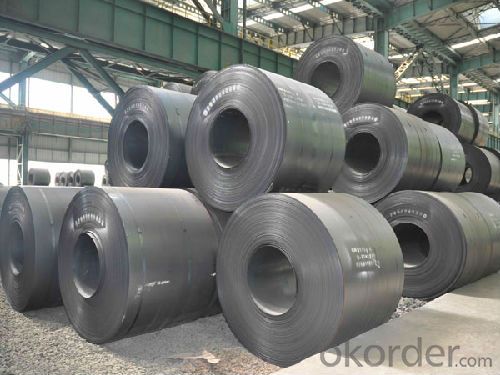
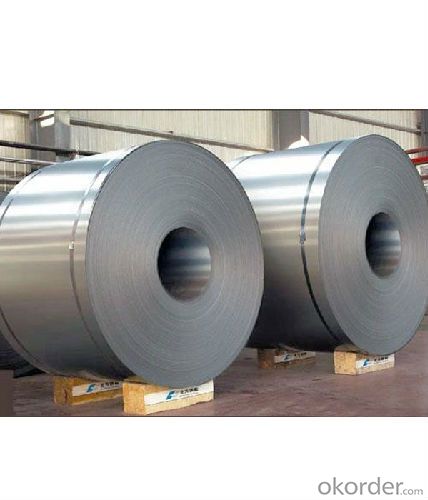
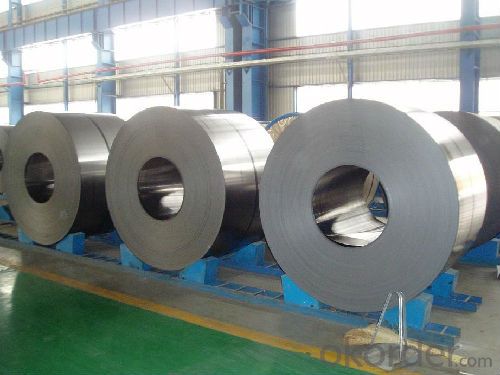
- Q: How does special steel contribute to the medical aftermarket industry?
- Special steel plays a crucial role in the medical aftermarket industry by providing high-quality materials for the manufacturing of various medical devices and instruments. Its unique characteristics, such as corrosion resistance, high strength, and biocompatibility, enable the production of durable and long-lasting equipment like surgical instruments, implants, and prosthetics. The use of special steel ensures the safety and effectiveness of these medical products, ultimately contributing to improved patient outcomes and advancements in healthcare.
- Q: What are the different machining techniques used for special steel?
- There are several machining techniques commonly used for special steel, including turning, milling, drilling, and grinding. These techniques are employed to shape and cut the special steel into desired forms and dimensions. Each technique has its own unique advantages and is chosen based on the specific requirements of the project at hand.
- Q: What are the main manufacturing processes for special steel?
- The main manufacturing processes for special steel include electric arc furnace (EAF) melting, vacuum degassing, continuous casting, hot rolling, heat treatment, and finishing operations such as machining and surface treatment. These processes ensure the production of high-quality specialized steel with desired properties and performance characteristics.
- Q: How does special steel perform in pharmaceutical applications?
- Special steel performs well in pharmaceutical applications due to its excellent corrosion resistance, high strength, and ability to withstand extreme temperatures. It ensures the integrity and purity of pharmaceutical products by preventing contamination, thereby maintaining the quality and safety of drugs. Additionally, special steel's ease of cleaning and sterilization makes it an ideal choice for pharmaceutical equipment and machinery.
- Q: Can special steel be used for making electrical components?
- Yes, special steel can be used for making electrical components. Special steel refers to a group of steels with specific properties and characteristics that make them suitable for various applications, including electrical components. These steels are often engineered to have high electrical conductivity, low electrical resistance, good magnetic properties, and excellent heat resistance. They are typically used in electrical engineering applications where high performance and reliability are required, such as in the manufacturing of transformers, motors, generators, and electrical transmission systems. Special steel can also provide resistance to corrosion and high temperatures, which further enhances its suitability for electrical component manufacturing.
- Q: How does special steel contribute to the heat resistance of products?
- Special steel contributes to the heat resistance of products due to its unique properties and composition. It is specifically designed to withstand high temperatures without losing its strength or structural integrity. The inclusion of elements such as chromium, nickel, and molybdenum in special steel enhances its heat resistance by forming a protective oxide layer that prevents oxidation and corrosion at elevated temperatures. This enables products made with special steel to withstand extreme heat conditions, making them suitable for various applications in industries such as aerospace, automotive, and energy.
- Q: What are the different methods of surface anodizing for special steel?
- There are several methods of surface anodizing for special steel, including electrochemical anodizing, plasma electrolytic oxidation (PEO), and chromic acid anodizing. Each method has its own advantages and suitability for different steel types and desired outcomes. Electrochemical anodizing involves immersing the steel in an electrolyte solution and applying an electric current to form an oxide layer on the surface. PEO utilizes a high-voltage electrical discharge to create a thicker and more durable anodized layer. Chromic acid anodizing, on the other hand, utilizes a mixture of chromic acid and sulfuric acid to achieve corrosion protection and improved surface properties. The choice of method depends on the specific requirements and characteristics of the special steel being anodized.
- Q: How does special steel perform in high-speed applications?
- Special steel is specifically designed to perform exceptionally well in high-speed applications. Its unique composition and manufacturing process make it highly resistant to heat, wear, and fatigue, allowing it to withstand the extreme conditions often encountered in high-speed operations. One of the key properties of special steel that makes it ideal for high-speed applications is its high strength-to-weight ratio. This means that it can maintain its structural integrity and withstand heavy loads while being lightweight, enabling it to efficiently handle the demands of high-speed operations. Additionally, special steel possesses excellent heat resistance, which is crucial in high-speed applications where temperatures can rise significantly. It has a high melting point and can maintain its strength and hardness even at elevated temperatures, preventing deformations or failures that could occur with other materials. Furthermore, special steel's exceptional wear resistance ensures long-lasting performance in high-speed applications. It is able to withstand the continuous friction and abrasive forces that occur at high speeds, reducing the need for frequent replacements and improving overall efficiency. Moreover, special steel's resistance to fatigue is another important factor in its performance in high-speed applications. It can withstand repetitive loading and cyclic stresses without developing cracks or fractures, ensuring a longer service life and minimizing the risk of sudden failures. In summary, special steel is specifically engineered to excel in high-speed applications. Its high strength-to-weight ratio, heat resistance, wear resistance, and fatigue resistance make it an ideal choice for industries such as aerospace, automotive, and manufacturing, where high-speed operations are common. Its superior performance in these applications ensures reliable and efficient performance, contributing to enhanced productivity and safety.
- Q: What are the characteristics of high-speed steel?
- High-speed steel (HSS) is known for its exceptional durability and heat resistance. It has excellent hardness, toughness, and wear resistance, making it suitable for cutting tools and machining applications. HSS can withstand high temperatures without losing its hardness, allowing it to cut at high speeds without losing its sharpness. Additionally, it has good dimensional stability and can maintain its shape even under extreme conditions.
- Q: Can special steel be heat treated?
- Yes, special steel can be heat treated. Heat treatment is a process used to alter the physical and mechanical properties of steel by heating it to specific temperatures and then cooling it at controlled rates. This treatment allows for the adjustment of hardness, strength, toughness, and other desired characteristics in special steel.
Send your message to us
Light steel rail made in China for construction
- Loading Port:
- Tianjin
- Payment Terms:
- TT or LC
- Min Order Qty:
- 10000 m.t.
- Supply Capability:
- 10000 m.t./month
OKorder Service Pledge
OKorder Financial Service
Similar products
Hot products
Hot Searches
Related keywords
